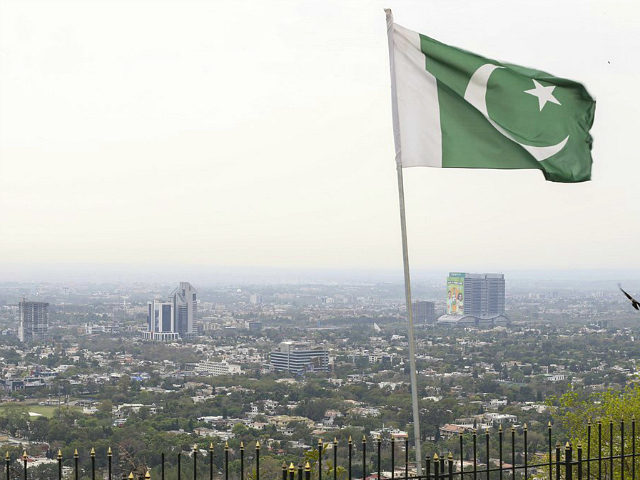The government of Pakistan announced on Friday that it will impose “reciprocal” restrictions on the travel of U.S. diplomats after the Trump administration implemented similar measures.
In a letter sent to the U.S. Embassy in Islamabad, authorities said that they had imposed “reciprocal travel permission” on U.S. diplomats after confirming their government “has been informed that the new travel permission regime for Pakistani diplomats and officials in the U.S. would be implemented from 11 May 2018.”
Pakistani Foreign Office spokesman Dr. Mohammad Faisal said on Thursday that the two sides were negotiating towards a solution.
“The restrictions will be implemented from May 11 and on a reciprocal basis,” he said, adding that “however, negotiations were going on between the two sides, on the matter.”
Dawn reports the restrictions include “withdrawal of seven facilities afforded to U.S. diplomats, including the use of non-diplomatic number plates on official vehicles, use of diplomatic number plates on unspecified or rented vehicles, and overshooting visa periods and/or the use of multiple passports.”
It added that the U.S Embassy must now “seek no objection certificates from the ministry to install radio communication at residences and safe houses, and while renting property or moving from one property to another,” as well as imposing a ban on using “tinted windows on official vehicles as well as rented vehicles, or [using] SIMs that are not biometrically verified or registered.”
Some of the restrictions initially imposed by the U.S. included forcing Pakistani diplomats to remain within 25 miles of the city they are working in.
The move is expected to place further strain on relations between the two countries, weeks after Pakistan prevented U.S. diplomat Col. Joseph Emanuel Hall from leaving the country after he allegedly ran a red light and killed a Pakistan man last month. However, Hall cannot be arrested under rules of diplomatic immunity.
Tensions between the two countries first arose back in January, after the Trump administration announced they were suspending an estimated $1 billion in security aid, after accusing Islamabad of failing to take concrete action against jihadists who are fighting American troops and their allies in Afghanistan.
Pakistan officials responded angrily to the decision, with Pakistan’s Foreign Minister Khawaja Muhammad Asif telling the Wall Street Journal that the countries were no longer allied.
“We do not have any alliance,” Asif said. “This is not how allies behave.”
Meanwhile, Pakistan’s Chief of Army Staff (COAS) General Qamar Javed Bajw claimed that the “entire Pakistani nation felt betrayed” by President Donald Trump, who accused the country of giving the U.S. “nothing but lies and deceit” as well as “safe haven to terrorists.”
Follow Ben Kew on Facebook, Twitter at @ben_kew, or email him at bkew@breitbart.com.

COMMENTS
Please let us know if you're having issues with commenting.